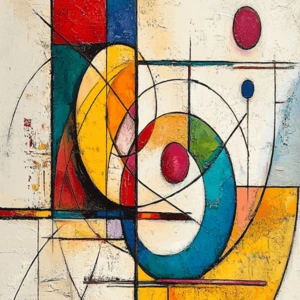The Hardest University to Get Into in South Africa: University of Cape Town
When it comes to the hardest university to get into in South Africa, the University of Cape Town (UCT) stands out as the most competitive and selective institution in 2025. Renowned for its academic excellence, rigorous admission standards, and limited spaces, UCT poses a formidable challenge for applicants.
Why UCT is the Hardest University to Get Into
South Africa’s 26 public universities attract thousands of applicants annually, but UCT’s combination of prestige, low acceptance rates, and high academic thresholds makes it the toughest to enter. According to the QS World University Rankings 2025, UCT ranks 171 globally and 1st in Africa, drawing a massive pool of domestic and international applicants. Its stringent entry requirements, competitive programs, and limited first-year spaces—approximately 4,500 out of 140,000 nationally—create a bottleneck, making admission a steep climb.
Key Highlights
- Founded: 1829 (as South African College, full university status in 1918)
- Location: Rondebosch, Cape Town, Western Cape, South Africa
- Student Population: Over 29,000 students (2024 UCT Annual Report)
- First-Year Intake: Around 4,500 students annually
- Acceptance Rate Estimate: 10-15% (derived from application-to-admission ratios)
- Global Ranking: 155 (THE 2025), 171 (QS 2025)
Admission Challenges: The Numbers Tell the Story
UCT’s selectivity stems from its high demand and limited capacity. In 2023, South Africa saw 900,000 students write the National Senior Certificate (NSC) exams, with 570,000 passing (Stats SA). Of these, universities collectively offer 140,000 first-year spaces, with UCT allocating just 4,500—about 3.2% of the national total. With applications reportedly exceeding 30,000 annually (UCT admissions data approximations), the acceptance rate hovers between 10-15%, one of the lowest in the country.
Admission Stats
- Applications: Over 30,000 per year (2024 estimate, based on historical trends)
- Accepted Students: Approximately 4,500
- Acceptance Rate: 10-15% (unofficial, as exact figures aren’t publicly released)
- APS Minimum: 34-48 points (varies by faculty; e.g., Medicine requires 48+)
- NBT Requirement: Mandatory National Benchmark Test scores in the top percentiles
UCT’s Admission Point Score (APS) system, based on NSC results, sets high bars. For instance, the Faculty of Health Sciences demands an APS of 48+ (out of 54), plus exceptional NBT scores, while Engineering requires 40+. Competitive programs like Medicine and Law often see hundreds of applicants per spot, with success rates as low as 5% in these fields.
Academic Rigor: Setting the Bar High
UCT’s reputation as Africa’s top university fuels its competitiveness. It ranks 1st in Africa across multiple metrics—THE 2025, QS 2025, and EduRank 2025—with strengths in research output (over 2,500 papers annually) and citations (1.2 million total). This prestige attracts top talent, intensifying competition.
- Faculties: 6 (Commerce, Engineering, Health Sciences, Humanities, Law, Science)
- Programs: Over 300 undergraduate and postgraduate options
- Top Fields: Medicine, Engineering, Actuarial Science (often with <10% acceptance)
- International Applicants: 18% of students from over 100 countries
The National Benchmark Tests (NBTs)—mandatory for all applicants—further filter candidates. Scores in Academic Literacy, Quantitative Literacy, and Mathematics must rank in the upper quartile for competitive programs, excluding many otherwise qualified students.
Comparative Selectivity: UCT vs. Other SA Universities
While exact acceptance rates are rarely published, proxies like application volume, entry requirements, and anecdotal data highlight UCT’s difficulty compared to peers:
| University | QS Rank 2025 | Estimated Acceptance Rate | APS Range | First-Year Intake |
|---|---|---|---|---|
| University of Cape Town | 171 | 10-15% | 34-48 | 4,500 |
| University of Witwatersrand | 267 | 20-25% | 32-45 | 6,000 |
| Stellenbosch University | 283 | 15-20% | 33-47 | 5,000 |
| University of Pretoria | 430 | 25-30% | 30-42 | 8,000 |
- Wits: Higher intake (6,000) and slightly lower APS thresholds ease entry.
- Stellenbosch: Language policies (Afrikaans/English) limit its applicant pool, reducing competition.
- UP: Larger capacity (8,000) and broader programs dilute selectivity.
UCT’s smaller intake and higher global ranking drive its exclusivity, with Medicine and Engineering acceptance rates rivaling Ivy League standards (e.g., Harvard’s 3%).
The Application Process: A High-Stakes Game
Applying to UCT is a rigorous process, starting with an R100 application fee (waived for some NSFAS applicants) and requiring:
- NSC Results: Minimum 70-80% averages for competitive faculties
- NBT Scores: Often 75th percentile or higher
- Personal Statement: Essential for programs like Law and Humanities
- Portfolio/Interviews: Mandatory for niche courses (e.g., Fine Art)
The 2025 application window (April 1 – July 31, 2024) saw over 30,000 submissions, with Health Sciences receiving 5,000+ applications for just 200 spots—a 4% acceptance rate in that faculty alone. Late applications are rarely considered, adding pressure to meet deadlines.
Campus and Prestige: Worth the Fight
UCT’s 543-hectare campus at the foot of Table Mountain enhances its allure, offering:
- Facilities: 1.3 million library volumes, 40+ research centers
- Residences: Housing for 6,000+ students
- Global Appeal: Ranked among the world’s most beautiful campuses (THE, 2025)
This prestige, paired with alumni like Ralph Bunche (Nobel Peace Prize 1950), fuels demand, making entry a coveted prize.
Why UCT is the Hardest
UCT’s difficulty stems from:
- Low Acceptance Rate: 10-15%, dropping to <5% for top programs
- High Entry Standards: APS of 34-48, NBT excellence
- Massive Applicant Pool: Over 30,000 vying for 4,500 spots
- Global Reputation: Africa’s #1 university, drawing elite talent
No other South African university matches this level of selectivity in 2025.
Conclusion: UCT’s Unmatched Challenge
The University of Cape Town is the hardest university to get into in South Africa in 2025, defined by its 10-15% acceptance rate, 4,500 first-year spots, and world-class status. With over 30,000 applicants competing annually, only the brightest and best secure a place. For ambitious students, UCT is the ultimate test—and reward—of academic excellence.
Share This





